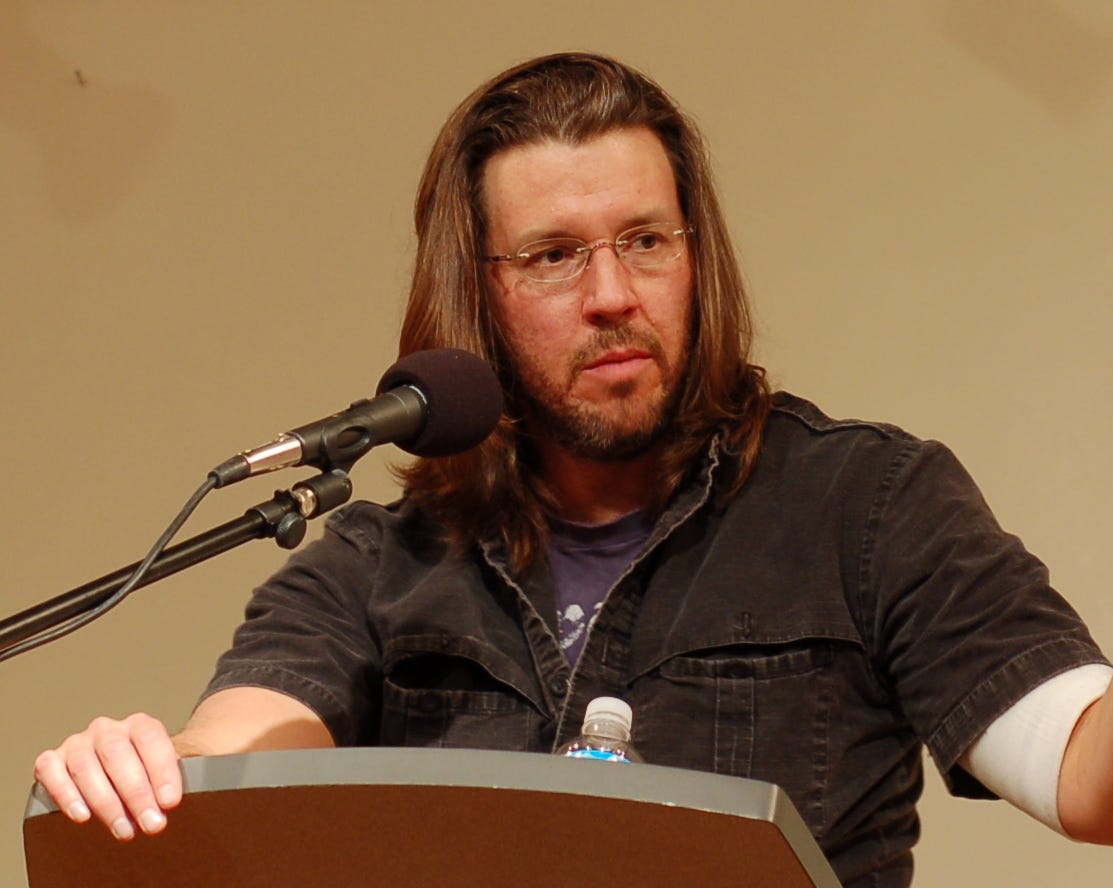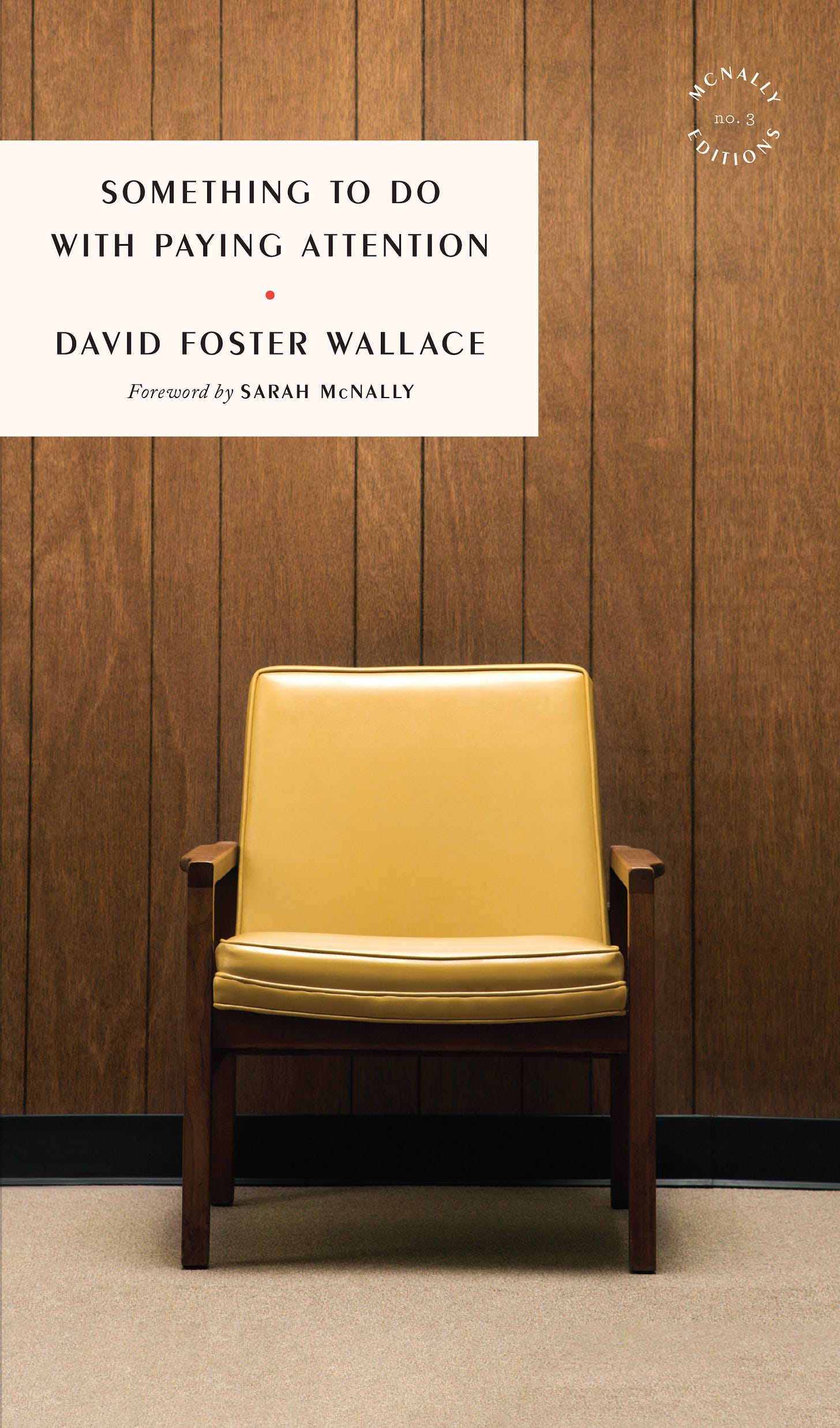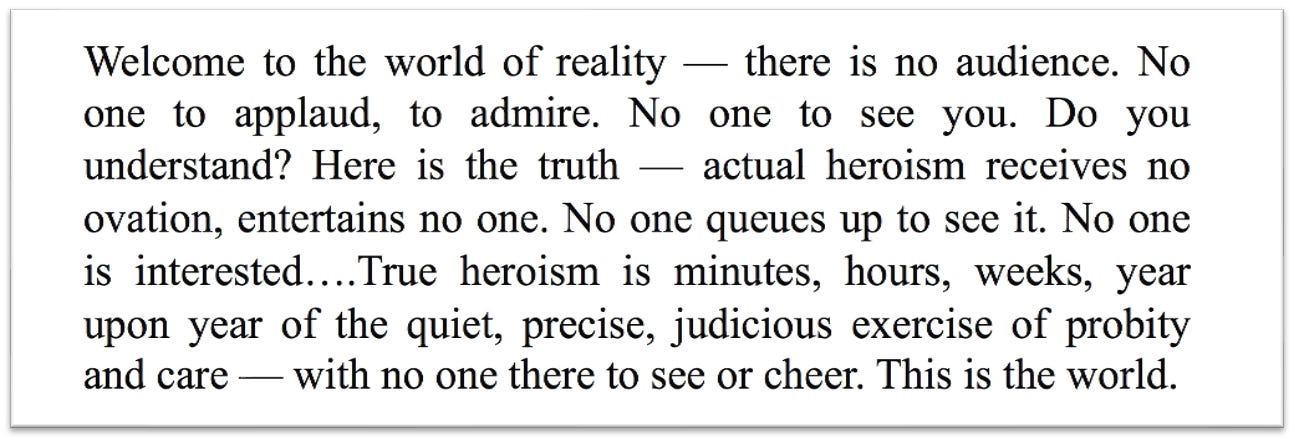Where to Start in Reading David Foster Wallace
My recent essay on this author got an unexpectedly huge response. But where should readers go next?
I never anticipated such a warm response to my essay on David Foster Wallace. Everyone tells me that serious reading is dead, but my article on a very serious author got 500 restacks and 2,000 likes.
That’s twice as many as my Taylor Swift piece!
So score a victory for literature, even in these troubled times.
But many readers now want to know more about Wallace. So I’m offering a followup guide below.
Please support my work—by taking out a premium subscription (just $6 per month).
This tragic author, who committed suicide at age 46—after a long battle with chronic depression—has exerted a deep influence on my work. But most pundits consider him too difficult as a writer.
That’s not entirely fair. Wallace’s most famous book, Infinite Jest—1,079 pages and weighing 3.15 pounds (in the hardcover first edition)—is challenging. But Wallace wrote many other things, and some of them are quite accessible.
Yes, I love Infinite Jest, but that tumescent tome wasn’t my entry point into Wallace’s work. I only decided to read it after Wallace convinced me, in other contexts, that he deserved the time and attention.
I advise you to do the same. So let me suggest other entry points into the world of DFW.

Something to Do with Paying Attention
I give this book away as a gift—especially to young people. I even convinced my son to read it when he was getting ready to enter seventh grade. (I wrote about that here.)
I’m not the only person who feels this way. Substacker Peter James also commented on this book in response to my article—suggesting that it should be read by every high school senior. That makes sense to me. I would assign it if I taught teenagers. But you don’t need to be a youngster to benefit from this novella.
It’s very accessible, and just 150 pages. And it’s filled with deep life lessons, embedded in an compelling story.
It’s also the source of one of my favorite quotes from Wallace—which I’ll share here.
A Supposedly Fun Thing I’ll Never Do Again
Wallace often worked as a journalist. But he was a wild journalist. He turned in long, uninhibited work that drove editors crazy—and that led to long negotiations, as these pieces were downsized into suitable articles for magazine readers.
The best of these works have now achieved legendary status, and are often assigned as exemplars of creative non-fiction. Two of my favorites are included in this collection.
The title essay chronicles Wallace’s trip on a cruise ship—which he took solely at the behest of his editor at Harper’s. He was not a cruise vacation kind of guy. He made a valiant effort to have a fun time—but I think the reader gets the most enjoyment out of this trip.
The other cherished piece here finds Wallace spending day after day at the Illinois State Fair. It’s called “Getting Away from Already Being Pretty Much Away from It All,” and it’s funny and sad all at the same time—reminding us that we can’t really go home again, even if you’re a Midwesterner returning for the State Fair.
This Is Water
Wallace dealt with anxiety his entire life. So it’s not surprising that he avoided public lectures, and only gave one commencement address during his entire life.
That happened at Kenyon College in 2005. His talk is now available in a short book that you can read in one sitting. It’s one of the best works on mindfulness you will ever find.
Here are some other possibilities:
My first exposure to Wallace was via his short stories. I especially like the collection Oblivion.
I enjoy reading interviews with Wallace. The collection The Last Interview and Other Conversations is the best place to start.
Books about Wallace are also surprisingly good—not always a given when dealing with contemporary writers. But I happily recommend D.T. Max’s bio, and David Lipsky’s account of his road trip with the author.
And let me give a final enthusiastic nod to The Marriage Plot by Jeffrey Eugenides—a novel featuring a male protagonist who greatly resembles David Foster Wallace. It’s a smart, moving book that deserves to be more widely read.





Another great entry point is the title essay from the collection Consider The Lobster. Very accessible and funny and unnerving. Read it here:
http://www.gourmet.com.s3-website-us-east-1.amazonaws.com/magazine/2000s/2004/08/consider_the_lobsterd996.html?printable=true
DFW taught in the English Dept. for ten years at Illinois State U. (Normal, IL) and was beloved by the students. I love the Kenyon College address. Also recommended is Jonathan Frantzen’s essay on DFW. Thank you for bringing this literary treasure to wider notice.